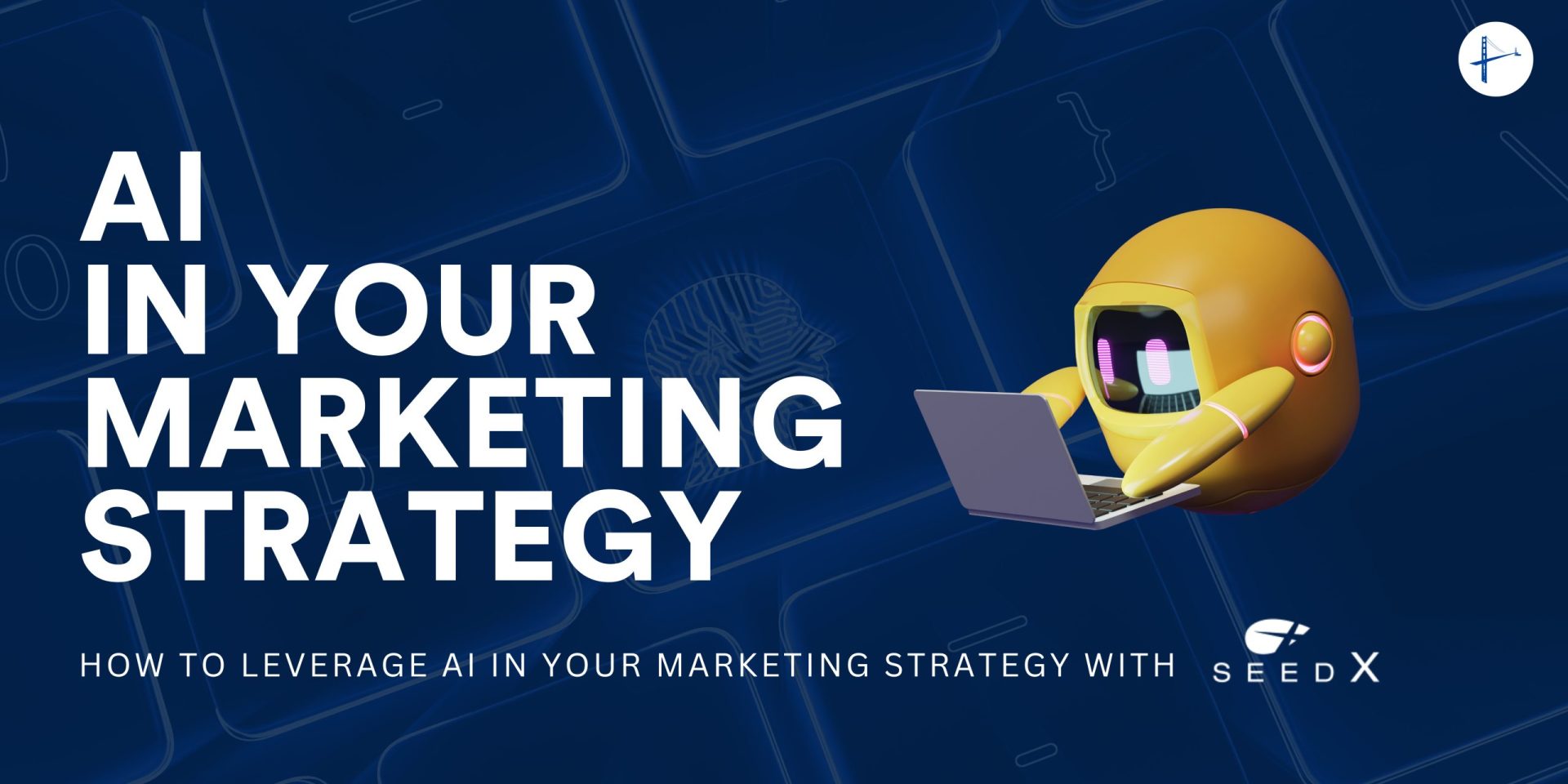Contributed by SeedX
AI encompasses various technologies, each reshaping the industry in unique ways. Let’s explore some of these technologies and their applications:
- Machine Learning – Machine learning algorithms optimize digital advertising through programmatic ad buying, where ads are automatically placed in real-time auctions. These algorithms maximize ad effectiveness By analyzing user behavior and website context.
- Natural Language Processing (NLP) – NLP powers chatbots for instant customer support and engagement in digital marketing. These chatbots use advanced NLP, such as ChatGPT, for content generation, creating engaging blog posts, social media updates, and email newsletters.
- Computer Vision – Computer vision enables visual content marketing by identifying products in images for e-commerce. This technology enhances the shopping experience through visual search functionality, increasing conversion rates.
- Predictive Analytics – Predictive analytics forecasts future outcomes in digital marketing. In email marketing, predictive analytics models analyze customer behavior data to personalize email campaigns, leading to higher engagement and conversion rates.
- Speech Recognition – Speech recognition technology transforms digital marketing through voice search and voice-enabled assistants. Businesses leverage speech recognition by optimizing websites and content for voice queries to provide relevant information and recommendations to users. As AI continues to advance, its integration into digital marketing will offer new opportunities for innovation and growth. Now, let’s examine how these technologies are being applied across various marketing channels.
Artificial Intelligence in Action Across Marketing Channels
AI provides a competitive edge across marketing channels, transforming how businesses engage with their audience and optimize strategies. By leveraging AI technologies, companies are gaining deeper insights, enhancing personalization, and driving more impactful campaigns, outperforming competitors and improving marketing effectiveness.
Here is how AI is being used in different marketing channels today:
- Digital Advertising
AI-powered algorithms optimize ad targeting and placement in real-time, maximizing the effectiveness of digital advertising campaigns. For example, Coca-Cola utilized AI to effectively target audiences during the “Share a Coke” campaign, increasing brand visibility and engagement across digital platforms.
- Content Marketing
AI tools generate data-driven content tailored to individual preferences, enhancing personalization at scale. For example, HubSpot’s Content Strategy Tool uses AI to analyze user data and provide content recommendations, helping businesses create engaging and relevant content that resonates with their target audience. Additionally, many marketing professionals use ChatGPT to assist in idea generation when developing content.
- Social Media Marketing
AI can automate social listening, monitoring brand mentions, and sentiment analysis across social media platforms. Starbucks implemented AI-powered social listening tools to gather customer feedback and insights. These tools allow Starbucks to respond promptly to customer inquiries and concerns, thereby improving brand perception and loyalty.
- Email Marketing
AI-driven insights enable highly personalized email campaigns, increasing open and click-through rates. Amazon, a pioneer in AI-powered marketing, utilizes sophisticated algorithms to analyze customer data and behavior. By leveraging AI, Amazon sends personalized product recommendations and tailored promotional offers via email, resulting in higher engagement and conversion rates.
- Search Engine Optimization (SEO)
AI solutions can enhance SEO by analyzing data from various sources to improve page rankings and develop sound strategies. AI-powered platforms like Clearscope and Frase analyze data to identify semantic relationships and relevant topics. By generating content aligned with user intent and search engine algorithms, businesses improve website relevance, leading to higher page rankings on SERPs.
- Customer Relationship Management (CRM)
AI-powered CRM platforms analyze customer data to identify patterns and predict future behaviors. Salesforce’s Einstein AI, for example, analyzes customer interactions and engagement data and then provides personalized recommendations and predictive insights, which enable businesses to build stronger relationships and drive revenue growth.
Embracing AI across channels isn’t just about staying ahead; it’s about redefining engagement rules. With AI, your company can unlock deep insights, connect profoundly, and drive remarkable results. But AI is not without its challenges
Navigating the Complexities of AI in Marketing
Implementing AI in digital marketing presents several challenges that businesses must navigate to maximize its effectiveness. Let’s explore four key complexities:
- Data Quality and Integration: AI relies heavily on data to generate insights and make informed decisions. However, ensuring data accuracy, consistency, and relevance can be challenging, especially with large datasets. Integrating data from various sources requires robust infrastructure and data management practices. Without high-quality data, AI algorithms may produce inaccurate results, undermining marketing initiatives.
- Ethical and Regulatory Compliance: As AI is integrated into marketing strategies, ethical considerations and regulatory compliance are paramount. Personalized targeting and automated decision-making raise concerns about privacy and fairness. Adhering to regulations such as GDPR and CCPA is essential to protect consumer rights. Ensuring transparent, accountable, and bias-free AI algorithms is crucial for trust and credibility.
- Maintaining Brand Voice: While AI offers automation, digital marketing risks losing the human touch. Striking a balance between AI capabilities and maintaining brand authenticity is vital. It’s important to align AI-generated content with the brand’s values and tone to foster meaningful connections with customers. By proactively addressing these challenges and implementing strategic solutions, businesses can harness the full potential of AI in marketing while maintaining regulatory compliance, ethical integrity, and customer trust.
Navigating the Path Forward
The integration of AI into marketing strategies heralds a new era of innovation and efficiency. By leveraging AI technologies, marketers can enhance customer engagement, streamline operations, and unlock valuable insights.
With a strategic approach and a commitment to responsible implementation, AI can help you elevate your campaigns, create deeper connections with customers, and drive sustainable growth.
If you’re interested in refining your marketing strategy with AI, get in touch with SeedX — a full-service digital marketing agency that specializes in custom marketing solutions for enterprise and B2B businesses.
